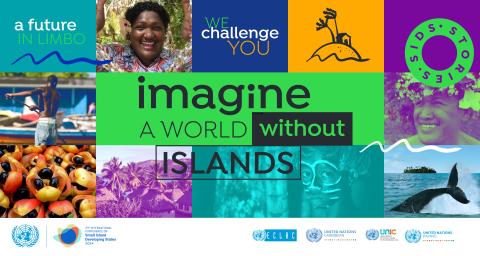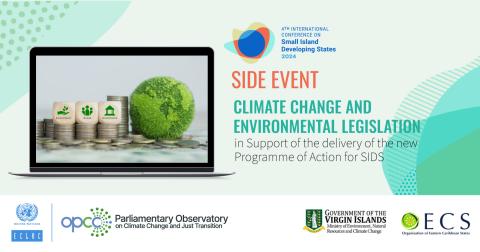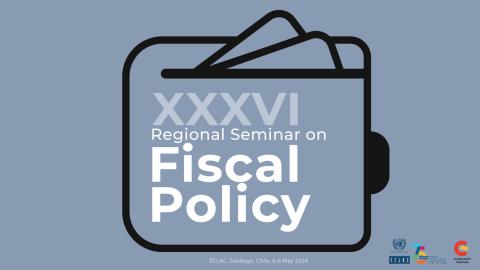News
The Economic Commission for Latin America and the Caribbean (ECLAC) proposed today in the framework of the climate conference in Paris a strategy to reduce the external public debt of English-speaking Caribbean countries that are considered to be Small Island Developing States (SIDS) through the creation of a regional resilience fund to finance climate change adaptation and mitigation measures.
This proposal was presented today by the Director of the regional organization’s Economic Development Division, Daniel Titelman, during an event organized by ECLAC in conjunction with the Commonwealth Secretariat, in the context of the 21st Conference of the Parties (COP21) to the United Nations Framework Convention on Climate Change, which is taking place from November 30 to December 11 in France.
Titelman explained that in 2013, ten countries of the Caribbean (Antigua and Barbuda, the Bahamas, Barbados, Belize, Dominica, Grenada, Jamaica, Saint Kitts and Nevis, Saint Lucia, and Saint Vincent and the Grenadines) had total public debt percentages of between 76% and 130% of their Gross Domestic Product (GDP), above the limits of what is considered to be sustainable debt.
Total public debt, both internal and external, in 15 countries of the Caribbean (the ten already mentioned plus Anguilla, Guyana, Montserrat, Suriname and Trinidad and Tobago) reached nearly 50 billion dollars, equivalent to 72% of subregional GDP. Of this amount, about 30 billion corresponds to internal debt and nearly 18 billion to external debt, 46% of which is owed to private creditors and 54% to public creditors.
ECLAC underscores that these high debt burdens reflect the economic and environmental vulnerabilities of these countries and have become a hindrance to development of the SIDS (which also include countries that are not islands but that face similar challenges). As an example of this, it is estimated that between 2000 and 2014 natural disasters caused damage of at least 27 billion dollars in English-speaking Caribbean countries.
The United Nations regional organization proposes the creation of a resilience fund that can be financed through instruments such as Debt Swaps for Climate Change Adaptation and Mitigation, which require interaction between multilateral institutions, donor countries and debtor countries. The sources of financing for this mechanism can come from the global funds for climate change.
In exchange, the beneficiary countries would have to commit to allotting the resources that they save on debt servicing to this Caribbean resilience fund, which would be dedicated to financing climate change mitigation and adaptation actions and would be managed by a solid and credible financial institution.



